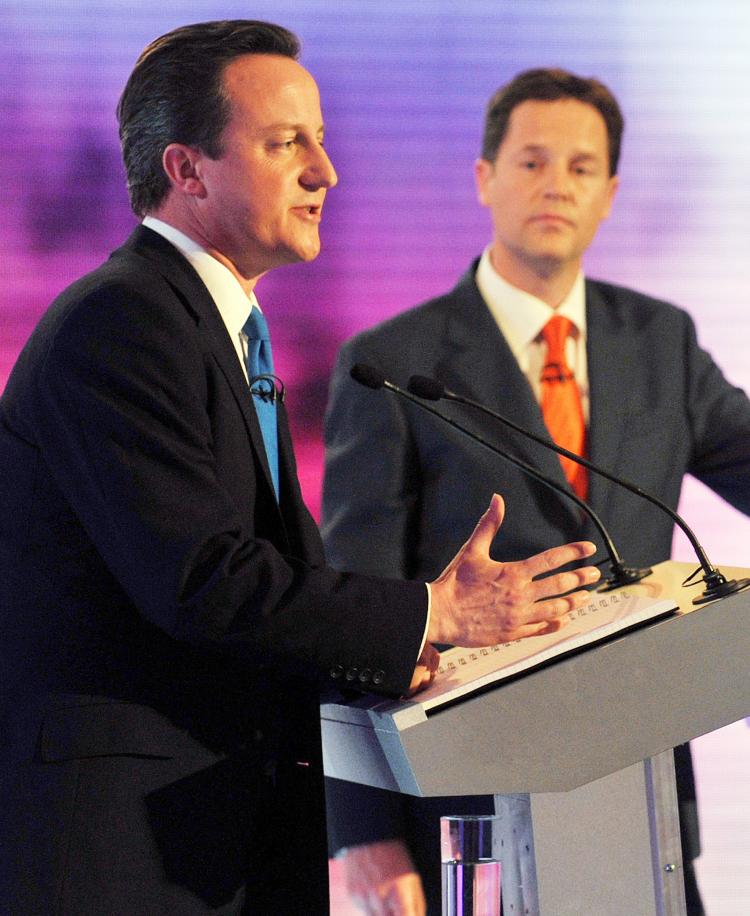Conservative candidate David Cameron came out on top of the instant polls after the final TV debate in the tightly-contested British election.
The focus of this week’s leader’s debate on Thursday was on the economy, but it also featured an array of other topics.
Instant polls suggested the Tory (Conservative) Party leader was regarded as the winner of the debate. A poll of the polls by Sky News put the Tory leader at 38 percent, Liberal Democrat leader Nick Clegg at 32 percent, and Prime Minister Gordon Brown at 26 percent.
In his opening speech, the prime minister immediately tried to take the sting out of the headline-stealing gaffe he had made the day before, when he had referred to a supporter of his own party as a “bigot” when she raised questions over immigration.
“There is a lot to this job, and as you saw yesterday, I don’t get all of it right,” said Mr. Brown, “but I do know how to run the economy, in good times and in bad.”
With the country facing choppy financial waters under the gray skies of a large deficit, the debate on the economy had always been slated as the most important. And if it weren’t for Mr. Brown’s gaffe the previous day, the run up to the debate would have been dominated by the threat of financial aftershocks rippling across Europe from Greece and Spain.
Mr. Cameron underlined once more what he saw as the need to tackle the country’s deficit immediately, in order to safeguard the nation’s international credit rating, a policy that Mr. Brown said would kill off the recovery. Mr. Cameron also attacked the government’s plans to increase national insurance, which he said amounted to a tax on jobs.
Commentators agreed that all three leaders failed to give precise details of how they would make the vast adjustments to government spending and taxation that will be needed to chart the course between the pressures of deficit and recovery.
But the lack of clarity was not surprising. The day before it had emerged that the governor of the Bank of England had said that whoever won the next election would then be out of power for a generation, so harsh and unpopular are the economic measures they need to take.
The election TV showdowns between leaders is an entirely new phenomenon to British politics, and experts are unsure how the debates will translate into votes. Parallels with presidential debates are difficult to draw as the election is not a vote for the prime minister, but for a local representative (from a specific party) to Parliament.
The first-ever TV debate, just two weeks ago, apparently transformed British politics from a two-horse to an unprecedented three-horse race, as Liberal Democrat Nick Clegg outperformed his rivals, driving a completely unexpected rise in his party’s popularity in the polls and shattering the long-held status quo of British politics.






